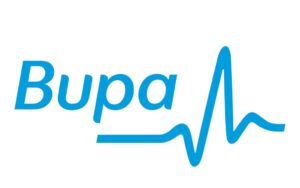How to get cheap health insurance- 2025
Written By: Stuart Hendy
How to get cheap health insurance- 2025
Private medical insurance offers many benefits, but it can seem expensive. However, it’s possible to get a good policy on a budget. Our guide will show you how to find affordable health insurance, disproving the myth that it’s too costly for the average person. You can save and still get decent health insurance cover.
Get Tailored Health Insurance Quotes from Top UK Insurers
For many of our clients, keeping costs low is important when choosing private medical insurance. If you’re considering private insurance to avoid long NHS waiting times, you’ve come to the right place. So, how can you find affordable health insurance? What will it cost? And what will it cover?
There are many ways to reduce your health insurance premium and in this guide, we will walk you through everything you need to know about getting a cheap and affordable health insurance plan.
How does private health insurance work?
Health insurance helps pay for acute medical treatments. You pay a monthly fee for your insurance policy and it will cover costs for sudden and serious health problems, like a broken bone or surgery. Most plans cover inpatient treatments, which means care that requires you to stay in the hospital overnight. Each health insurance policy usually includes comprehensive cancer cover and a basic hospital list, so you have access to medical treatments. You can choose from a list of hospitals covered by your plan.
However, private medical insurance does not cover chronic conditions or pre-existing health conditions you had before the plan started. If you get ill or hurt after starting your insurance, your health policy will help pay for the treatment based on what your plan covers.
Benefits of Health Insurance
Health insurance offers a range of benefits that can provide quicker access to medical care, more options for treatment, and added comfort during your stay. Here’s what you can expect from having health insurance:
Faster Access to Specialists
With private health insurance, your GP can refer you to a private specialist for a second opinion or expert treatment, which is often quicker than waiting for an NHS referral.
Quicker Scans and Tests
If the NHS is delaying a scan or won’t provide one, health insurance allows you to get the scans you need, without having to wait.
Shorter Waiting Times for Treatment
If your NHS treatment wait time is over six weeks, your insurance can speed up the process, allowing you to receive care sooner.
Freedom to Choose Your Surgeon and Hospital
Private health insurance gives you the option to choose your surgeon and hospital based on what works best for your schedule and location. This flexibility isn’t usually available with the NHS.
Private Hospital Rooms
Health insurance increases your chances of staying in a private room, giving you more privacy and comfort compared to the mixed-sex wards in NHS hospitals.
Access to Specialist Treatments and Drugs
Some drugs and treatments that aren’t covered by the NHS due to cost or lack of approval may still be available through your insurance, giving you access to a wider range of care options.
Faster Physiotherapy Appointments
You can access physiotherapy more quickly through insurance than you might through the NHS, helping you recover faster from injuries or surgery.
Levels of health insurance cover
When choosing private health insurance, you’ll have three main options: basic, mid-range, or comprehensive plans. Here’s a breakdown of each option with examples:
- Basic plan
This is also known as the “treatment-only” plan. It covers all inpatient and day-patient treatments, including your stay at private hospitals. However, for diagnosis and initial consultations, you will use the NHS. For example, you could be diagnosed by an NHS doctor, but if you need surgery, you will be treated in a private hospital. This is the most affordable option, but you’ll still rely on the NHS for some parts of your care. - Mid-range plan
With this plan, you can have some outpatient care privately. This usually includes an initial consultation, a few diagnostics like blood tests or scans, and 1-2 follow-up appointments. For example, you might see a private consultant for your initial diagnosis and get an MRI scan privately, followed by a treatment plan in a private hospital. However, some aspects of your care, such as more follow-up visits, may still involve the NHS. This offers more flexibility than the basic plan but at a higher cost. - Comprehensive Plan
This is the most complete option and covers everything privately. There are no limits on the number of consultations, diagnostics, or treatments. For example, you can see a private consultant from the start, have all necessary tests and diagnostics in private facilities, and receive your entire treatment privately, including any follow-up care. While this plan is the most expensive, it offers peace of mind, knowing you will have fast access to top private care without restrictions.
Since the COVID-19 outbreak, most health insurance providers now include online GP consultations as a standard part of their plans, giving you easy access to medical advice when needed.
What Is Covered by Treatment-Only Medical Insurance Plans?
Treatment-only medical insurance plans are designed to provide cover for more serious medical issues that require hospital-based treatment. They are more affordable than comprehensive health insurance policies because they exclude outpatient services like routine doctor visits, consultations and diagnostic tests. Here’s a detailed breakdown of what they cover:
1. Inpatient Care
Inpatient care means any treatment where you need to stay in a hospital, and it’s a key part of treatment-only plans. These plans cover major surgeries like hip replacements, heart surgeries, and cancer treatments, with the insurance paying for the operation. They also cover the cost of staying in a private hospital, often with your own room, a private bathroom, and better meals. Some plans also help with recovery after surgery, like covering physiotherapy to help you get better faster.
2. Day-Patient Care
Day-patient care involves medical procedures where you don’t need to stay overnight, but still require a hospital setting. This includes minor surgeries, such as cataract surgery or endoscopy, where you can return home the same day. It also covers treatments like dialysis or chemotherapy, which need medical supervision but don’t require a long hospital stay.
Cancer treatment is an essential part of most treatment-only health insurance plans, given the serious nature of cancer. Health plan cover generally includes surgery to remove tumours or affected areas, as well as chemotherapy and radiotherapy to destroy cancer cells. Some plans also provide access to advanced drugs and innovative therapies that may not be available through the NHS due to their high cost or lack of approval.
4. Private Hospital Stay
When you use a treatment-only policy, you’ll usually receive care in a private hospital or a private area of an NHS hospital. These places provide private rooms, so you won’t be in a shared ward but will have your own space for more comfort and privacy. Private hospitals also offer better services, like higher-quality food, quieter surroundings, and faster access to treatments or surgeries.
5. Limited Mental Health Support
Some basic treatment-only policies offer mental health support. This can include access to a limited number of therapy or counselling sessions for issues like stress or anxiety. Many insurers also provide 24/7 helplines for advice and support with mental health challenges. Additionally, some policies may cover inpatient mental health care, but this is often included in more comprehensive plans.
What Treatment-Only Plans Don’t Cover
While treatment-only policies offer great cover for serious conditions, they don’t cover many common medical services. These include:
- Outpatient Consultations and Diagnostic Tests. Visits to specialists and tests like MRIs or blood work aren’t covered. You would need to pay for these yourself or use the NHS.
- Routine Medical Care. Everyday health services, such as GP visits, vaccinations, and check-ups, aren’t included.
- Chronic Condition Management. Long-term conditions like diabetes or asthma require ongoing monitoring, which isn’t covered.
- Maternity Treatment. Basic treatment-only policies don’t cover pregnancy and childbirth unless there are complications.
Why Choose a Treatment-Only Plan?
Treatment-only health insurance is a great option if you’re primarily concerned about covering the costs of serious medical conditions and hospital stays. The lower premiums make it more affordable than comprehensive policies while still giving you access to high-quality care for major health issues.
Example:
Ideal For:
- People looking for affordable private health insurance focused on hospital treatments.
- Those who don’t need frequent outpatient services but want quicker access to private treatment for major health issues.
Best Cheap Health Insurance Providers for 2025
Finding affordable health insurance in 2025 can be challenging, but several providers offer great options that balance cost and cover. Here’s a quick look at some of the best choices:

AXA provides affordable health insurance with a solid health insurance policy for hospital stays. Their plans are flexible, allowing you to choose between basic options with no outpatient services, a standard plan that covers up to three outpatient visits or comprehensive cover. If you pay annually instead of monthly, you can save up to 5% on your premiums. AXA’s insurance also includes access to online and phone GP appointments, making it easy to get medical advice without leaving home. This flexibility and focus on essential treatments make AXA a good choice for those looking to manage their health costs effectively.

Bupa offers a wide range of health insurance plans that can be customised to fit your needs. You can select policies with varying levels of outpatient cover, ranging from £500 to £1,000. Bupa’s treatment and care plans are particularly notable because they allow you to get diagnosed through the NHS and then receive private treatment, offering a blend of public and private care. Their policies also cover both inpatient and outpatient services, including a 24/7 medical helpline and provide a cash benefit for NHS treatments. This flexibility makes Bupa a popular option, especially among older individuals who may require more extensive medical care.

Vitality is known for its focus on promoting a healthy lifestyle through its insurance plans. Their affordable plan includes advanced cancer care, up to six physiotherapy sessions and video GP consultations, which can be very convenient. You can choose to reduce your monthly premium by opting for no outpatient cover or choosing from £500, £750, or £1,000 for outpatient consultations. With Vitality’s plans, you can choose unlimited diagnostics, which means you won’t face extra costs for necessary tests. Their unique approach to rewarding healthy behaviours can further lower your overall insurance costs, making it an attractive option for health-conscious individuals.

Aviva offers a variety of affordable health insurance plans with flexible health insurance cover options. Their treatment-only plans cover hospital stays and physiotherapy. You can also choose options that help you save money, such as guided consultant choices and a six-week wait for non-urgent treatments. Aviva’s policies include digital GP services, allowing for convenient medical consultations online. For families, Aviva’s policy is advantageous as you only pay for the eldest child, while additional children are covered at no extra cost. This combination of flexibility, affordability and family-friendly features makes Aviva a compelling choice.

The Exeter provides health insurance that is both flexible and comprehensive. Their policies offer unlimited cover for inpatient and day-patient treatments, extensive cancer care, and up to three months of post-hospital physiotherapy. They also provide access to a health app for virtual GP appointments, making it easier to get medical advice from home. Health plan options range from £0 to £1,000, with unlimited diagnostics available. A notable feature of The Exeter’s plans is the inclusion of a second opinion service, which can be invaluable for getting additional medical advice and ensuring the best treatment options.

Freedom Health, a family-run company, is praised for its efficient claims handling. Their policies cover treatments at private hospitals and include various options for outpatient consultations, from £0 to £1,500 or unlimited with their Elite plan. By paying annually, you can save on premiums and they offer family discounts where you only pay for the eldest child, with the rest covered for free. Also, if you pay annually instead of monthly, you can save up to 6% on your premiums. Freedom Health’s plans are designed to be both flexible and cost-effective, making them a strong choice for those seeking affordable health insurance with good plan options.
How Much Does Treatment-Only Health Insurance Cost?
Our health insurance advisors have compared prices for treatment-only plans from top UK health insurance providers. Here are the average monthly premiums for a healthy, non-smoking individual with a basic hospital list, a £100 excess, and no outpatient cover, residing in the HA1 postcode. Includes full outpatient, comprehensive cancer cover and under New Moratorium underwriting option:
| Age | Monthly Premium |
|---|---|
| 20 years old | £31.15 |
| 30 years old | £36.89 |
| 40 years old | £42.75 |
| 50 years old | £68.11 |
| 60 years old | £77.91 |
| 70 years old | £118.02 |
How to Save Money on Health Insurance
Saving money on your health insurance is easier than you might think. Here are some simple ways to cut costs:
Compare Prices
Get quotes from different insurers to find the best deal. Each one might offer different prices and coverage. A health insurance broker can help you find the right plan for you.
Customize Your Plan
Choose the coverage that fits your needs. Some plans let you pick and choose what’s included. A broker can help you make sure you get the right coverage without paying for extras you don’t need.
Go for Full Medical Underwriting
When you choose full medical underwriting, you give details about your health history upfront. This can sometimes be cheaper and gives you a clear idea of what’s covered.
Increase Your Excess
A higher excess means you pay more out of pocket before the insurance starts covering costs. This can lower your monthly premium. Just make sure the excess is an amount you can afford.
Select Lower Hospital List
Use the standard list of hospitals included in your plan. Avoiding more expensive hospitals can help reduce your premiums.
Add a Six-Week Wait Option
This option means your insurance will only cover treatment if you have to wait more than six weeks for NHS care. This can lower your premium but may not cover emergency follow-ups.
Other Ways to Pay for Your Private Medical Treatments
If you’re looking for alternatives to private health insurance, there are several other ways to pay for private medical treatments:
Self-Funding
Self-funding means paying for your medical treatments directly out of your own savings or income. This option allows you to choose your treatment and provider without involving an insurance company. Many private hospitals and clinics provide clear pricing, so you can plan your budget and pay as needed.
Cash Plans
Cash plans are a type of insurance where you pay a monthly premium, and in return, you get cash back for certain medical expenses. They don’t cover all treatments but can help with costs like dental care, optical treatments, or physiotherapy. These plans are generally more affordable than comprehensive health insurance and can help manage specific health costs.
NHS Treatments with Private Top-Ups
NHS treatments with private top-ups allow you to use the NHS for your initial diagnosis and treatment but pay privately for any additional services. For example, you might use the NHS for a consultation and then pay privately for quicker access to surgery or for a private room. This approach can help balance the cost and the quality of care you receive.
These methods provide different levels of flexibility and cost management. Choosing the right one depends on your financial situation and healthcare needs.
Speak to a broker
Finding the right health insurance plan can be challenging, especially if you’re looking to keep costs low. For personalised advice and to find the best deal on health insurance, contact our professional advisors at PremierPMI. Our experts can help you save up to 38% on your renewal or find the most competitive price if you are looking for a new policy. Let us guide you to the best and cheapest health insurance plan for your needs and budget.
FAQ
Sources
- https://www.drewberryinsurance.co.uk/private-health-insurance/low-cost-health-insurance
- https://www.bupa.co.uk/health/health-insurance/treatment-care
- https://www.axahealth.co.uk/small-business/cover-options/outpatient/
- https://www.vitality.co.uk/health-insurance/guides/in-patient-and-out-patient-cover-explained/
- https://www.swbh.nhs.uk/wp-content/uploads/2019/01/Overseas-visitors-webpage2.pdf
How it works
Step 1. Answer a few simple questions
Step 2. Get tailored quote
Step 3. Get covered and start saving
Why Choose Us
We offer completely free and no obligation advice on Private Health Insurance. Our experienced advisors will take the stress away from you and do all the hard work in finding you the best Provider by comparing quotes with the top leading providers in the market. We have worked directly with AXA, Aviva, Bupa and Vitality for over 40 years, we have been tailor-making the best policies for our customers.
Health Insurance People
Get expert advice from our dedicated health insurance advisors for free
24/7 Customer Care
You can contact us anytime and one of our health insurance consultants will always be available to you.
Claims Support
We will be there for you throughout the claims process to ensure that it is easy and stress-free.










